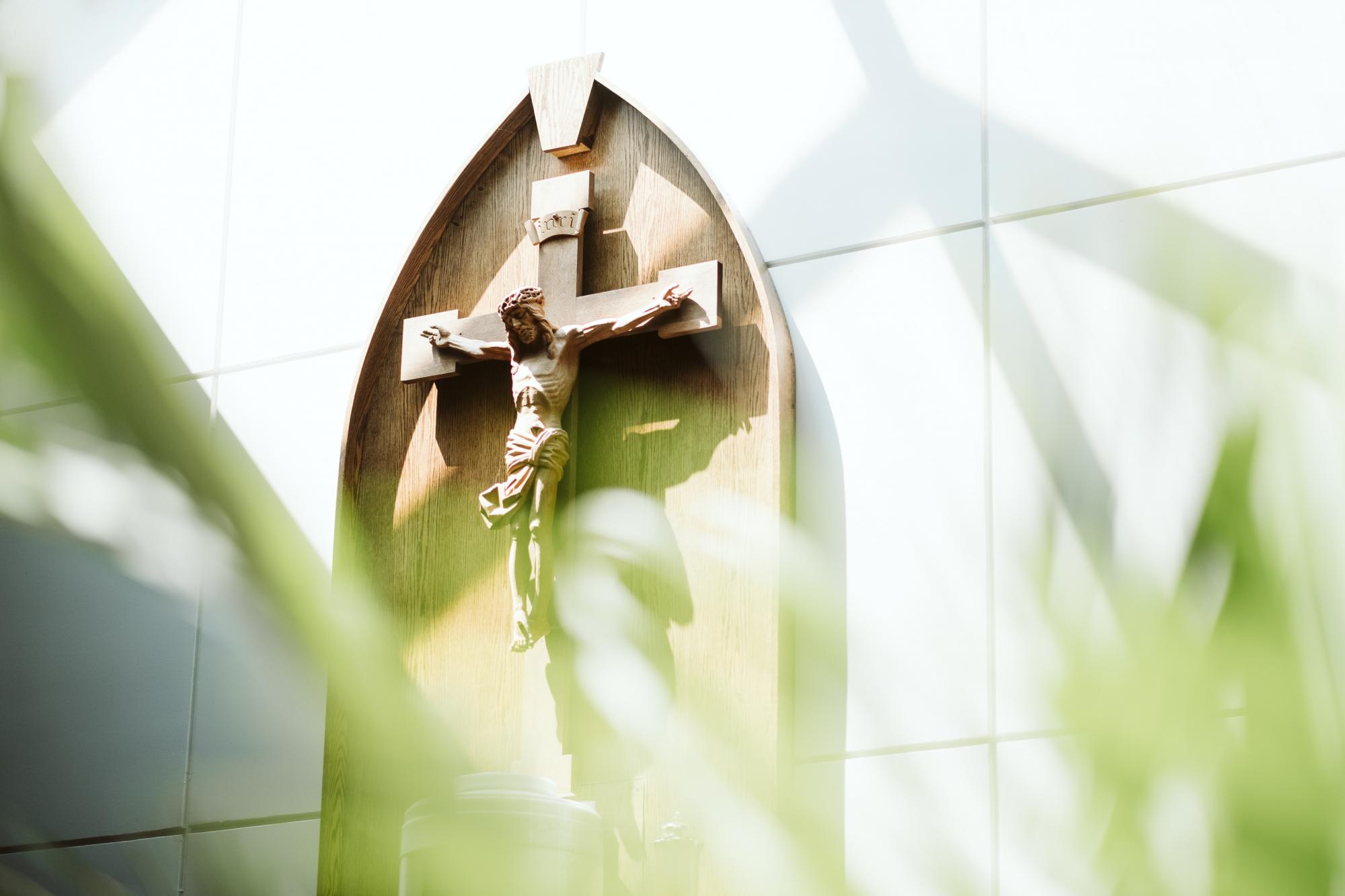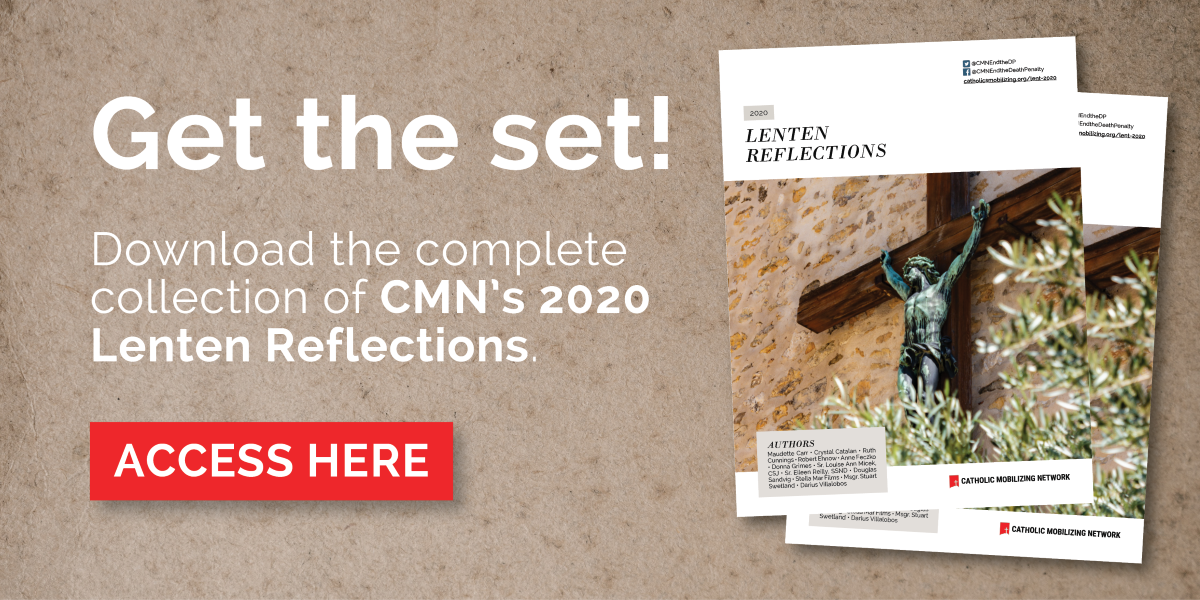
April 5, 2020 | Robert Ehnow | Today's Readings
Jesus began his week in Jerusalem being hailed as the Savior, the King of the Jews. By the end of the week, he was arrested, scourged, and crucified. It was a precipitous change for Jesus and his followers who believed that he was the one, the Messiah.
“Two revolutionaries were crucified with him, one on his right and the other on his left.” -Matthew 27:38
The Passion of Christ vividly reminds us that Jesus left our world as a condemned prisoner. Jesus endured the torture from his jailers, and the humiliation of being stripped—not only of his clothes, but his human dignity as well.
It is wholly important to also recognize that one of the prisoners who was crucified alongside Jesus was given reassurance that he would join Christ in paradise. Imagine: a condemned prisoner, the man we venerate as St. Dismas, was promised a place in heaven!
It is no coincidence that during Jesus’ ministry, he urged his followers to visit the imprisoned and accompany the many marginalized people they encountered.
When Jesus provided comfort to St. Dismas who was condemned for his crime, he was providing a promise to all of us that regardless of our sins we can attain a place in heaven with him by asking for his love and forgiveness.
In the U.S., we have 2.2 million men and women in our jails and prisons; the U.S. is the world’s leading jailer. Prison and jails are places of unimaginable loneliness, violence, and shame for those who inhabit these dark places. Our incarcerated citizens are often forgotten, and they remain invisible to most of us. And, we are called to love them, visit them, and provide mercy to them—Christ gave us his example two thousand years ago during his ministry and his Passion.
When I was in prison, I often felt that I was not worthy of love or forgiveness, and my own shame often kept me from a more intimate relationship with Jesus. I was very fortunate that my wife, children, extended family, and friends accompanied me during a very dark period in my life. In retrospect, it was Jesus that accompanied me every step of the 807 days that I was incarcerated, gently reminding me that I was loved unconditionally.
How can we emulate Christ’s mercy? We can begin by reflecting on the fact that those who are in jail and prison are created in the same image and likeness of God as we. We can also leave judgment to God, and pray for incarcerated men and women, their families, and their victims.
As Catholics, we believe in the sanctity of all life; the prisoner may be invisible to most of us, but he is very much loved by God. In the Gospels we know of three people that were given a place in heaven: Jesus, his mother, and St. Dismas, the Good Thief.
The Son of God, the Virgin Mother, and a condemned prisoner—all together in paradise.



